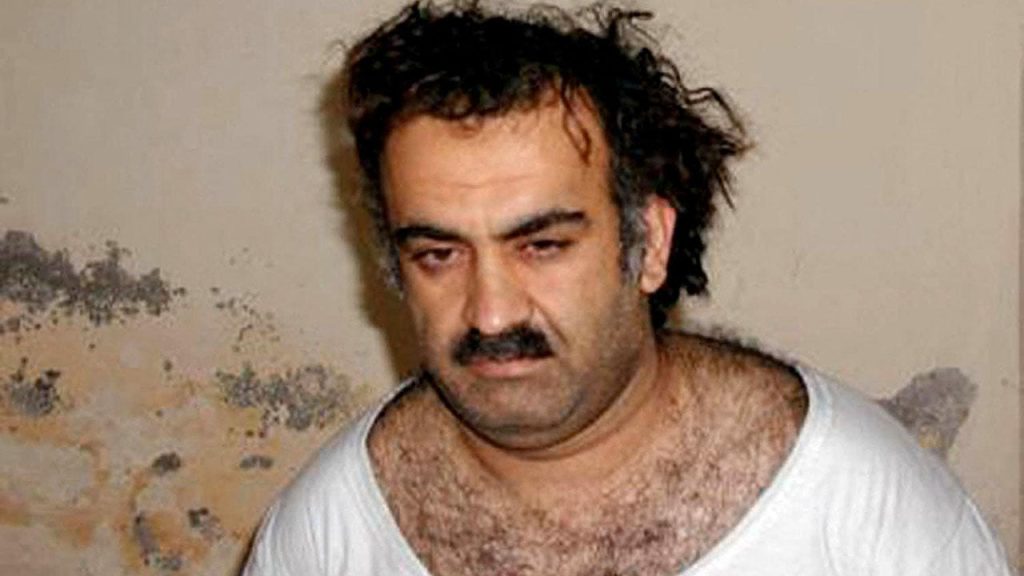The anticipated guilty pleas of Khalid Sheikh Mohammed and two co-conspirators in the 9/11 attacks have been abruptly halted by a federal appeals court, injecting further uncertainty into a two-decade-long pursuit of justice. This pause, while welcomed by opponents of the plea deals, prolongs the agonizing wait for closure experienced by victims’ families. The controversial agreements, negotiated between military prosecutors and defense lawyers, would spare the three terrorists from the death penalty in exchange for life imprisonment, sparking widespread public condemnation and even internal dissent within the Biden administration.
The legal battle surrounding the plea deals escalated dramatically over the New Year period. Initially, Defense Secretary Lloyd Austin attempted to block the agreements, arguing against leniency for those responsible for the horrific attacks. However, a military appeals court rejected Austin’s intervention, asserting his lack of authority to overturn plea agreements already in place. This decision seemingly paved the way for the guilty pleas to proceed. Yet, the saga took another turn when the Department of Justice appealed the court’s ruling, reigniting the legal wrangling and further delaying the already protracted proceedings. This back-and-forth between the courts and the government underscores the complex and contentious nature of the case, leaving the future of the plea deals hanging in the balance.
The central question remains: why, after 23 years of meticulous investigation and case-building, did the government opt for plea agreements? The rationale appears to be twofold: a desire to finally bring some measure of closure to the victims’ families and a pragmatic recognition of the challenges and potential further delays associated with a full trial. However, this approach has been met with fierce resistance, particularly from those directly impacted by the 9/11 tragedy. Critics argue that the plea deals not only deny justice but also deprive the public of a full accounting of the events surrounding the attacks. Brett Eagleson, president of 9/11 Justice, voiced the outrage felt by many, expressing disbelief and horror at the prospect of the terrorists escaping the death penalty. He and others suspect political motivations behind the government’s push for plea deals, viewing them as an attempt to avoid further controversy and potential political fallout.
The government’s appeal emphasizes the gravity of the crimes committed, highlighting the unprecedented scale of the 9/11 attacks and the importance of a public trial to determine guilt and consider capital punishment. The appeal contends that accepting the plea agreements would irreparably harm the government and the American people by precluding a full airing of the evidence and a potential death sentence. Furthermore, the government argues that once the pleas are accepted, there is no viable path back to the original trial process, effectively foreclosing any possibility of revisiting the case in the future.
Defense lawyers for the accused, however, counter that the government’s attempt to rescind the plea deals represents yet another instance of mismanagement in a case plagued by delays and missteps. They argue that the plea agreements, negotiated and approved by the military, should be honored. The defense paints a picture of a government struggling to navigate the complexities of the case, resulting in a protracted and frustrating process for all involved. The central issue revolves around the admissibility of evidence obtained through enhanced interrogation techniques, raising concerns about the fairness and integrity of the proceedings.
The controversy surrounding the plea deals exposes the wider challenges facing the military commission system established to try Guantanamo detainees. While hundreds of individuals have been successfully prosecuted for terrorism-related offenses in U.S. courts, the 9/11 case has languished in the military commission system, beset by a revolving door of judges, mountains of evidence, and procedural complexities. The continuous delays and logistical hurdles raise serious questions about the effectiveness and viability of this alternative judicial system. The impending retirement of the current judge, Col. Matthew McCall, further complicates matters, as yet another judge would need to familiarize themselves with the vast case file, potentially adding years to the already protracted timeline.
The plea deals, while offering a potential path to resolution, also carry significant implications for the victims’ families. Many, now elderly, yearn for closure and accountability, yet grapple with the prospect of the perpetrators avoiding the ultimate punishment. The government’s pursuit of plea agreements appears driven by a desire to secure some measure of justice within a reasonable timeframe, acknowledging the advanced age of many family members and the risk of further delays. However, this pragmatic approach has been met with resistance, with some arguing that justice delayed is justice denied.
The 9/11 case stands as a stark reminder of the enduring challenges in balancing the pursuit of justice with the complexities of national security and legal procedure. The plea deals, while offering a potential path to closure, have ignited a fierce debate about the appropriate punishment for those responsible for one of the most devastating attacks in American history. The ongoing legal battles and the strong emotions surrounding the case underscore the profound and lasting impact of 9/11, leaving the quest for justice still unresolved after more than two decades.



